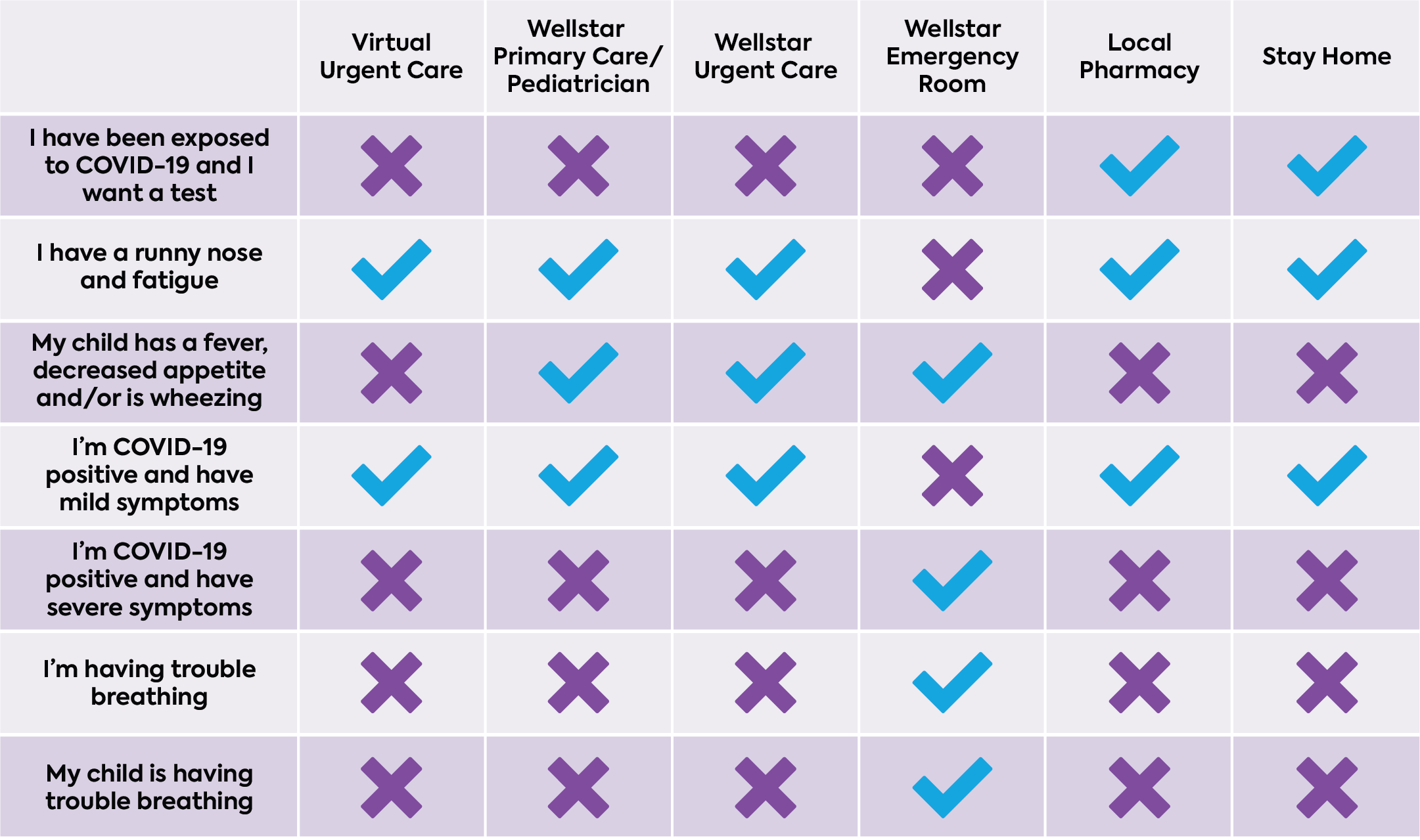At Wellstar, we believe prevention is the best way to protect yourself from a potential flu infection. That’s why it’s important for you and your family to get a flu shot every year.
This year, your loved ones age 12 and older may also choose to get the COVID-19 vaccine to help protect their health.
As we continue to navigate the COVID-19 pandemic, we know it may be confusing to tell the difference between the flu and COVID-19. If you are unsure if you are experiencing flu or COVID-19 symptoms, please see the comparison section below.
Flu vs COVID-19
Influenza (flu) and COVID-19 are both viral respiratory illnesses and share many common signs and symptoms. Both illnesses are contagious and can be spread through person-to-person contact, although COVID-19 can spread to other people more easily and quickly than the flu. New variants of COVID-19, such as the Delta variant, are more contagious and spreading quickly across the U.S.
Since the flu and COVID-19 have many similar symptoms and traits, it may be difficult to determine which respiratory illness you may be experiencing. According to the Centers for Disease Control (CDC), there are key differences between the two illnesses:
Similarities
- Fever* or chills
- Cough
- Shortness of breath
- Fatigue
- Sore throat
- Runny or stuffy nose
- Muscle pain or body aches
- Headaches
- Vomiting and diarrhea, most common in children
- People 65 years of age and older and those with underlying health conditions may be at higher risk of contracting the flu and COVID-19.*
- Serious medical complications may occur, including pneumonia, respiratory failure, cardiac injury, worsening health conditions and bacterial infections.
*Note: Not everyone with the flu will have a fever. Children under the age of 5 may also be at higher risk of contracting the flu.
Differences
Seasonal flu shots are widely available to the public. With the COVID-19 vaccine now available for people age 12 and older, you and many of your loved ones can choose to be vaccinated to help keep our community safe. Find a location near you through the DPH website or at a local retail pharmacy.
Compared to the flu, people with COVID-19 may often:
- Experience sudden change or loss in taste or smell
- Experience additional complications in severe cases, including blood clots in the veins and arteries of the lungs, heart, legs or brain
- Take longer to develop symptoms (up to 14 days after infection)
- Stay contagious longer (at least 10 days after symptoms appear)
Diagnostic testing may be the best way to determine if you are currently infected with COVID-19 or may have had a past infection of the virus.
For more information about COVID-19 testing, click here.
Is It the Flu, Common Cold or COVID-19?
Compared to COVID-19 and even the flu, people with common colds usually experience milder than the other infections. Typically, colds do not result in serious health problems or complications, such as pneumonia or bacterial infections.
People with colds are more likely to have stuffy or runny noses. In general, experiencing fever, chills and headaches are uncommon.
For more detailed information, call (770) 956-STAR (7827) or visit our COVID-19 resource page.





